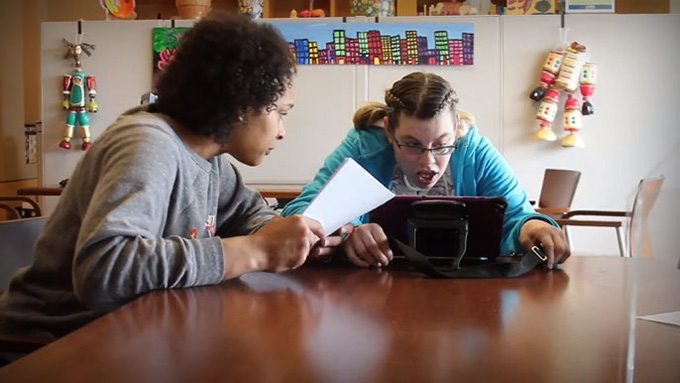
Laura and Carlos are two people in their twenties who are eager to learn, meet new people and do things independently. They want to study at university so they can find a job. But their options for accessing higher education are extremely limited. Like them, most young people with intellectual disabilities do not finish high school.
Like any citizen, Carlos and Laura (fictitious names of real people) have the right to education at all levels, including higher education . However, although educational policies are timidly developing strategies to support the academic development of people with cognitive disabilities, these strategies are scattered, due to the autonomous nature of higher education structures, and unsustainable, due to their scarce and vulnerable funding.
Various experiences show that students with intellectual disabilities who receive university education are very satisfied and their employability improves (and even, some after receiving this education, are able to return to school and graduate from secondary school). Right now, for example in Spain, they are only 1.6% of university students . Fortunately, something is changing.
Fighting youth unemployment
To combat youth unemployment in the population group of young people with disabilities aged 16 to 29, the programmes funded by UNIDIVERSIDAD of the ONCE Foundation have been offering, every year since 2017, specific qualifications for students with intellectual disabilities in more than 30 Spanish public and private universities. There are initiatives such as the Promentor programme , with almost 20 years of experience, which is the driving force behind the first training actions.
More than 2,000 students with intellectual disabilities have attended university classes in the last eight years. These programmes, which have great social value, represent a good practice for educational transformation in Spanish universities, considering their social impact.
What does the training offer consist of?
These proposals offer comprehensive training, including, as is proposed with the rest of the university studies (professional or not), the development of socio-laboral skills to accompany students with intellectual disabilities in their academic training and their employability, as is also done by the Inserlab training program .
The curricula take into account the support and access needs of these students, starting from an understanding of their psychological processes to ensure the cognitive accessibility of the content.
The training is designed with the aim of developing work skills and knowledge of the person, their strengths and needs. Thus, the programs have a structure based on functional, humanistic, professional and skills-development subjects or courses that are complemented by extracurricular activities on the university campus. In addition, they offer subjects or activities shared with university students without disabilities at undergraduate, postgraduate and vocational training levels.
How is inclusive education promoted?
Universities are adapting their policies to meet international sustainability parameters and, in this sense, are incorporating inclusion as a strategic objective . It is about collaborating in the development of society, a development that must be inclusive, equitable and sustainable.
It is important to offer studies that interest people with disabilities. There are reference guides and studies on independent living .
Methodologies and approaches
Diversity-friendly, accessible and innovative methodologies contribute to a people-centred university . These are methodologies that allow for the creation of networks, such as universal design for learning . They are based on the idea that the way in which students perceive and understand the information they receive is not homogeneous.
Another change of focus concerns ethics and its role in universities, which must be a bastion of human rights and consistent with their definition in the law as promoters of “access to university studies for people with intellectual disabilities.” Promoting the conditions of employability and autonomy of all people, thinking more about the possibilities than the difficulties of access, is part of this mandate.
Legal reforms
In order for all this to materialize, a legal reform is necessary to facilitate the transmission of the paradigm to each governing team. Some of the policies that try to approach these demands are inclusive , accessible and egalitarian campuses .
On the other hand, we must work on the structural and cognitive accessibility of the environment and of university classes, as well as on raising awareness in society, including future university students.
All of this implies a change from the “ableist” paradigm and the belief that the most capable should go to university: as the United Nations highlights , higher education is a right and a measure that enriches people, and therefore countries must guarantee access to it.
Author Bios: Joanne Mampaso Desbrow is Professor and Researcher at the Faculty of Education at Camilo José Cela University and Rosa Maria Diaz Jimenez is Professor of Social Work and Social Services at Pablo de Olavide University
